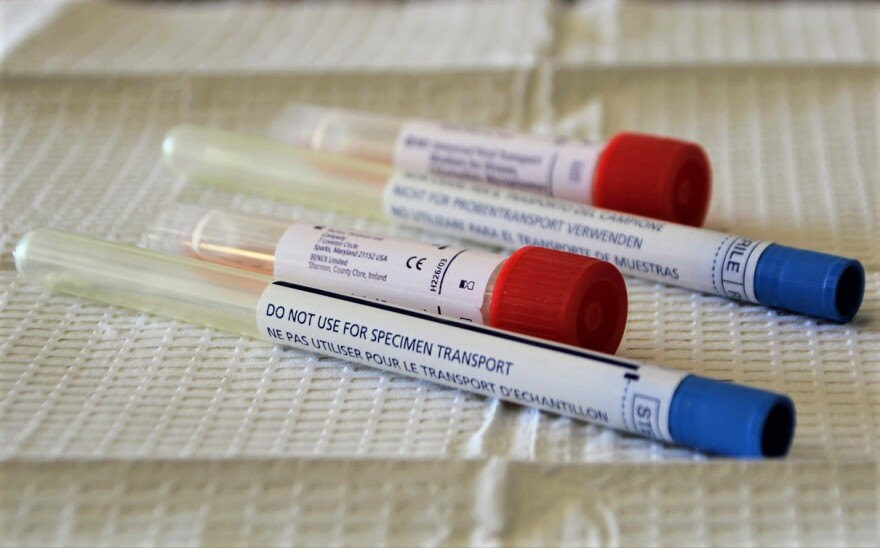Missourians cannot currently order at-home PCR COVID-19 tests from the state due to a sharp increase in demand for tests because of the omicron variant of the disease.
The program, which mails a PCR test to any Missouri resident in two days, is paused now until Jan. 12 so the state’s contractor can catch up on the backlog of tests.
After that, the state plans to offer a limited number of tests — just 500 tests a day — through the end of the month.
The tests will be available as of 12:00 a.m., or midnight, of each new day.
“We want to make sure that if people order a kit, they're not waiting for it for two weeks,” said Lisa Cox, the communications director for the Missouri Department of Health & Senior services.
Cox said the program began in May 2021, and during the first six or so months of the program, there were a little more than 6,000 requests.
But this changed in December. In the first several weeks of December, the state’s contractor, Picture Genetics, received 15,000 requests.
“Basically, what we had decided was that we would have a 15,000-ordering cap set,” Cox said. “And if we would hit that, we would reassess the need for testing, obviously, our budget, because those federal dollars are not infinite.”

Cox said the state then reopened the program on Dec. 29 or 30 with 10,000 additional tests, which were quickly claimed — as well as another 15,000 requests Jan. 1 through 4.
“[We] went ahead and paused it once they hit that 15,000, so we could take a look at our options,” Cox said. “Ultimately at that point, what we decided is because the need is obviously there, but at the same time the contractor can only get so many out the door a day.”
According to the state, the program spent $913,087 for test kits ordered from the inception of the program on May 28 until Dec. 15, and, Cox said, “we will spend another 1 million for the kits ordered Dec. 16 until now.”
After discussions with the contractor, Cox said they came up with a short-term plan: a pause on new requests until Jan. 12 so the contractor can address their backlog, and the 500 tests available every day through the end of the month.
Cox adds that these limitations are to ensure that Missourians can get the COVID-19 tests by mail, as well as their test results, in a timely manner.
She also said the state is exploring ways to increase access to tests, by either opening additional testing sites or offering more at-home test kits in the future.
“There are a lot of unknowns too, you know, we don't know when manufacturers will be able to supply more, or when the White House will begin supplying more to our own Missouri residents here too,” Cox said. “So I think we'll see a lot of change in the month of January.”
At the moment, Cox said they are asking Missourians to only request tests when they are showing symptoms, as about 80% of the tests that have been ordered so far are still sitting in homes.
And Cox adds that people should be sure they are testing at the appropriate time. According to the Centers for Disease Control and Prevention, a person should get tested five to seven days after an exposure or testing immediately if symptomatic.
“You don't want to test too early and give yourself that false sense of security thinking you don't have it and you go about your business without really using any prevention methods,” Cox said. “Because it may have just been too early to catch the viral load.”
Copyright 2022 KBIA. To see more, visit KBIA.




